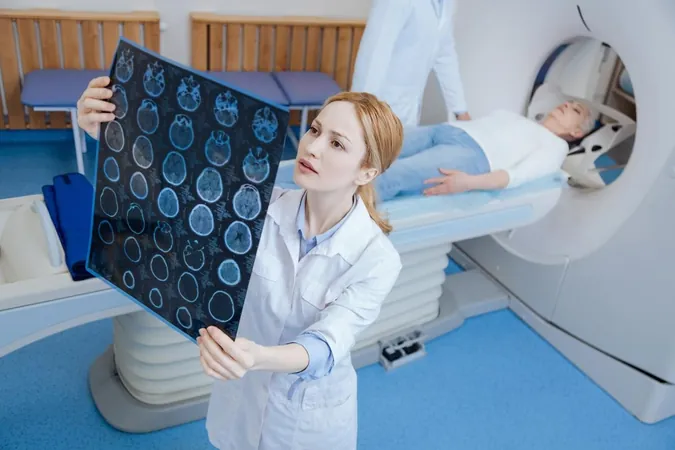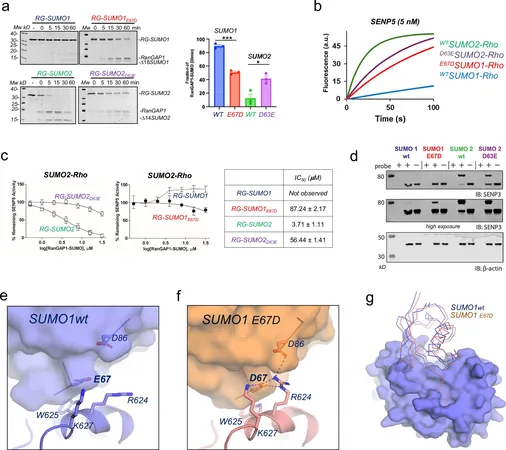
Breakthrough Update: New Guidelines for Diagnosing Alzheimer’s and Dementia Unveiled
2024-12-27
Author: Nur
In an exciting development for the medical community, experts have released updated guidelines for diagnosing Alzheimer’s disease and dementia, the first overhaul in over 20 years. Heartening news for families and individuals concerned about cognitive decline was announced on December 23, 2024, in the esteemed journal *Alzheimer's & Dementia*.
The new guidelines, designed for use by both primary care doctors and neurologists, focus on three key criteria to assess brain health: 1. **Overall Cognitive Impairment**: Examining how a patient’s cognitive abilities are functioning. 2. **Specific Symptoms**: This can include issues with memory, reasoning, language, or mood regulation. 3. **Potential Brain Diseases**: Identifying the diseases most likely responsible for the observed symptoms.
Dr. Alireza Atri from Harvard Medical School emphasized the flexible nature of these guidelines, allowing for future incorporation of new tests and research as our understanding of dementia progresses. “This comprehensive guideline aims to provide a high-quality and personalized evaluation process that can adapt alongside medical advancements," he noted.
The necessity for updated guidelines stems from the realization that the existing protocols, which catered primarily to specialists, left family physicians without clear direction in managing their patients’ brain health concerns. To address this gap, the Alzheimer’s Association brought together a diverse workgroup of professionals, merging insights from multiple medical disciplines.
Maria Carrillo, chief science officer for the Alzheimer’s Association, elaborated, “These guidelines are essential for evaluating memory complaints that can stem from various underlying causes. An early and precise Alzheimer’s diagnosis is critical.”
A detailed evaluation may involve: - **Cognitive Tests**: Assessing memory and thought processing. - **Risk Factor Assessment**: Considering family history, blood pressure, and lifestyle factors like smoking. - **Daily Life Symptom Review**: Analyzing everyday behaviors that might indicate cognitive issues. - **Imaging and Laboratory Tests**: Utilizing MRI, CT scans, and other lab work for comprehensive assessment.
Notably, these guidelines set a precedent for implementing newer testing modalities as they become validated in clinical practice.
In efforts to make the diagnostic process more patient-friendly, Dr. Brad Dickerson from Massachusetts General Hospital stressed the importance of aligning the evaluation goals with those of the patient. “This involves educating patients on each step in their diagnostic journey," he said, ensuring they remain informed and engaged.
With ongoing research continuously reshaping our understanding of Alzheimer’s and related dementias, these updated guidelines are a monumental step towards effective diagnosis and treatment. For those seeking more information, the National Institute on Aging offers a wealth of resources on dementia.
Stay tuned, as this development could transform the face of Alzheimer’s diagnosis and herald a new era in patient care.




 Brasil (PT)
Brasil (PT)
 Canada (EN)
Canada (EN)
 Chile (ES)
Chile (ES)
 Česko (CS)
Česko (CS)
 대한민국 (KO)
대한민국 (KO)
 España (ES)
España (ES)
 France (FR)
France (FR)
 Hong Kong (EN)
Hong Kong (EN)
 Italia (IT)
Italia (IT)
 日本 (JA)
日本 (JA)
 Magyarország (HU)
Magyarország (HU)
 Norge (NO)
Norge (NO)
 Polska (PL)
Polska (PL)
 Schweiz (DE)
Schweiz (DE)
 Singapore (EN)
Singapore (EN)
 Sverige (SV)
Sverige (SV)
 Suomi (FI)
Suomi (FI)
 Türkiye (TR)
Türkiye (TR)
 الإمارات العربية المتحدة (AR)
الإمارات العربية المتحدة (AR)